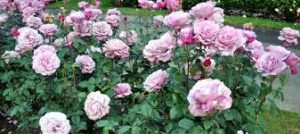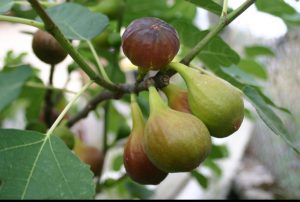 Our earth is called a blue planet because 70% of our earth is covered with water. In spite of such huge amount of water, there is still shortage of water to fulfill our needs. Because out of 70% water of earth 97% is salt affected and 3% is fresh water. Only 2.24% of fresh water is available for use on whole the earth. In the whole world 69% water is used for irrigation from this irrigated water 15-35% is wasted as unused.
Our earth is called a blue planet because 70% of our earth is covered with water. In spite of such huge amount of water, there is still shortage of water to fulfill our needs. Because out of 70% water of earth 97% is salt affected and 3% is fresh water. Only 2.24% of fresh water is available for use on whole the earth. In the whole world 69% water is used for irrigation from this irrigated water 15-35% is wasted as unused.
Most areas of Pakistan are characteristically arid and semiarid with high temperature and low rainfall. In Pakistan only 9% area receives high rainfall that is 20 inches per year.
G. Akhtar, Dr. R. M. Balal*, M. A. Shahid, Dr. M. Afzal*, Dr. A. Riaz
Institute of Horticultural Sciences, University of Agriculture Faisalabad
*University College of Agriculture, University of Sargodha

Our earth is called a blue planet because 70% of our earth is covered with water. In spite of such huge amount of water, there is still shortage of water to fulfill our needs. Because out of 70% water of earth 97% is salt affected and 3% is fresh water. Only 2.24% of fresh water is available for use on whole the earth. In the whole world 69% water is used for irrigation from this irrigated water 15-35% is wasted as unused. Most areas of Pakistan are characteristically arid and semiarid with high temperature and low rainfall. In Pakistan only 9% area receives high rainfall that is 20 inches per year. Only 22% area receives 10-20 inches rainfall and 69% area receives less than 10 inches rainfall in a year.
Due to low water availability there is great loss of crop yield, quality and livestock because less water availability produces drought conditions. Due to drought conditions insect infestation, plant diseases, wind erosion, air and water quality and wild life destruction occurs. Besides deficiency of water for agriculture in Pakistan. Lot of potable (water used for drinking) water wasted in the irrigation of gardens near the homes, buildings, schools etc. because every person likes different colored flowers and foliage plants. With the passage of time people are becoming apart from the nature due to more busy life and industrialization. So in this busy life only ornamental plants keep us close to the nature. Because these ornamental plants beautify our gardens and surroundings with the luxurious colors and rich fragrance. Many ornamental plants have number of color strains with small fractions of fragrance, with the result that every body likes to look at them. To grow different plants in home, school etc gardens a large amount of potable water is wasted. This wasted water is also called grey water but it is different from municipal wastewater because it does not contain human excretions (urine and faucal matter) and toilet paper. So grey water is a wastewater of bathtubs, showers, hand basins, laundry machines and kitchen sinks, in household, office buildings, schools etc. A family of two adults and two children consumes approximately 500 liters of water in a day. 10 liters were used in toilet, 30 in shower, 80 in bath, 50 in dishwashing and 100 in washing machine. In dry areas 80% of daily household is used for watering lawns. This wastage of water can create great problems in future in the form of water shortage. According to an estimate in the year 2025 about 52 countries in the world will face severe conditions of potable water shortage. In next 25 years 3 billions of people in the world will face water shortage conditions. So we should search new ways to save our wasted water or reuse it for our plants. The use of grey water for the irrigation of gardening is one of them. If we reuse this wasted water then it will be great saving of water. Use of gray in gardening is a step of solving our future problem of potable water shortage.
Grey water can be used as secondary source of water for irrigation. Grey water does not have harmful effects on soil N and P. But it has the effect on the soil pH and EC. Heavy metals are present in gray water. Grey water has fewer levels of N, P and K. so gray do not have harmful effects on plant growth and productivity. Soil health risks, which are associated with reuse of water, can be the reduced by the use of alternate irrigation with grey water and potable water. Grey water, which comes from the baths showers, is generally good water for irrigation. If diluted soup levels are present in the grey water then it will be good because it will use as wetting agent. If laundry grey water is using for irrigation of the garden then salt and phosphorus levels should be lower and pH should be neutral.
In grey water system we should not use toxic substances like bleach, dye, bath salts, cleanser, shampoo with unpronounceable ingredients, and other products containing boron, which is toxic to plants. We should use biodegradable soups which donot harm the plants and soil. Sodium is present in most of the powder detergents and liquid detergents. Sodium can effect soil and seeds of the plants. If these toxic substances are present then gray water can be treated and recycled. It’s recycling is much easier because it contains very less levels contaminations.
For the recycling of the gray water big tanks near the houses, buildings, schools etc are made. Grey water is collected in the tanks. Then this grey water passes through a filter to remove solids, disinfection by the addition of chlorine bleach and send to sand filtration beds. These sand filtration beds consists of layers of gravel and sand. Grey water passes through these beds and stored in a holding tank from their pumped into different part of the garden. For more treatment of grey water an electric pump or aerator can be used to oxygenate the grey water. Recycled gray water is clean water but not enough to drink. Recycled gray water can be used for toilet use and for the irrigation of garden.
Grey water should be used to the ornamental plants, shrubs and trufgrasses. It should not used to irrigate all the vegetables. If we want to use gray water for the irrigation of vegetables then only be use to those vegetables whose fruits grow above the ground e.g. tomato peas etc. It should not use to root crops (whose fruits grow in the soil e.g. beet carrot, reddish etc) and leafy vegetables. Do not apply gray water directly on the plants because it will harm the plant leaves and other parts. Mulch should be used to areas where gray water is used to speed up the natural decomposition process of waste residues. Grey water should only used to established plants. Young seedlings can grow healthily in the presence of impurities of grey water.
In developed countries like Australia, America etc reuse of water in the form of grey water for their gardens is very common practice. They are saving much of their potable water by using gray water in gardening. But in our country mostly people do not aware of about the grey water. People of our country waste much of potable water in washing of houses, washing of vehicles, kitchen, small gardens in the houses etc. By the reuse of this wasted water we can save water resources of our country. For this we should produce awareness in our people. Media can play very important role for giving under standing of grey waster. There should new research for the standardization of plants suitable for grey water.







